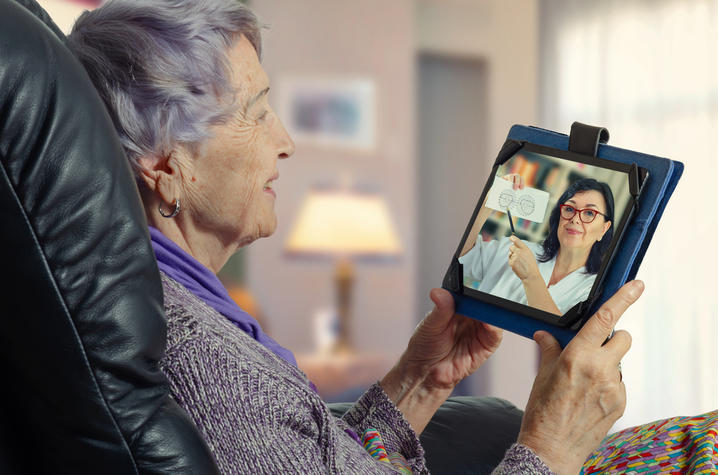UK GO program raising awareness for diabetic retinopathy

LEXINGTON, Ky. (Nov. 22, 2022) — November is Diabetic Retinopathy Awareness Month. During this month, the University of Kentucky Global Ophthalmology (UK GO) team is raising awareness for the condition that affects many Kentuckians with diabetes.
“Diabetes is very common in Kentucky,” said Ana Bastos de Carvalho, M.D., co-director of the UK GO program and assistant professor in the UK Department of Ophthalmology and Visual Sciences. “We rank eighth highest in the nation for diabetes prevalence, and diabetic retinopathy is the leading cause of blindness among working-age adults. This is a very serious issue.”
Diabetic retinopathy is an eye disease that can cause multiple eye issues, including vision loss or blindness, as a complication of diabetes. Anyone with diabetes is at risk of having diabetic eye disease, but the condition is preventable with the proper treatment.
“Early screening and intervention can reduce the risk of severe diabetic-related vision loss up to 90%, which is huge,” Carvalho said. “However, across the nation, diabetic retinopathy screening remains low, which has been a challenge that we are trying to combat with the UK GO program.”
UK GO is a program designed to promote equity in eye health care through clinical service, education, and research. The goal of UK GO is to ensure all Kentuckians have access to high-quality eye care. To make this happen, UK GO has developed a statewide telemedicine-based screening program for diabetic retinopathy, as well as a mobile eye clinic and other projects intended to meet the needs of communities in which high-quality eye care is currently scarce or unavailable. UK GO is also working globally by partnering with academic and health institutions in Ecuador to support the expansion of the country’s own eye care system.
“Our screening program is designed to screen and refer patients to providers local to them so they can get the care and treatment they need,” said Eric B. Higgins, M.D., founder of the diabetic eye screening program and associate professor of ophthalmology at the University of Kentucky. “We have had a lot of success early on with this groundbreaking program, and it continues to grow. I am honored to help these underserved communities, and to continue advocating for the prevention and treatment of diabetic retinopathy.”
Those interested in donating to the program can support it by contacting the UK HealthCare Office of Philanthropy to learn more or give online today.
As the state’s flagship, land-grant institution, the University of Kentucky exists to advance the Commonwealth. We do that by preparing the next generation of leaders — placing students at the heart of everything we do — and transforming the lives of Kentuckians through education, research and creative work, service and health care. We pride ourselves on being a catalyst for breakthroughs and a force for healing, a place where ingenuity unfolds. It's all made possible by our people — visionaries, disruptors and pioneers — who make up 200 academic programs, a $476.5 million research and development enterprise and a world-class medical center, all on one campus.




